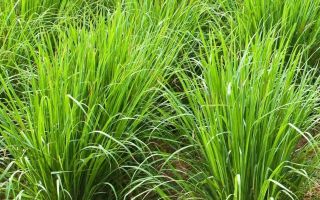Content
The beneficial properties and contraindications to lemongrass have long been known to those who are fond of herbal medicine. In addition to traditional medicine, the plant is used in cooking and cosmetology. It is actively used in Vietnamese, Malay, Thai cuisine, and Israeli scientists have found that the beneficial substances that make up lemongrass successfully fight the development of cancer cells in the body.
Lemongrass chemical composition
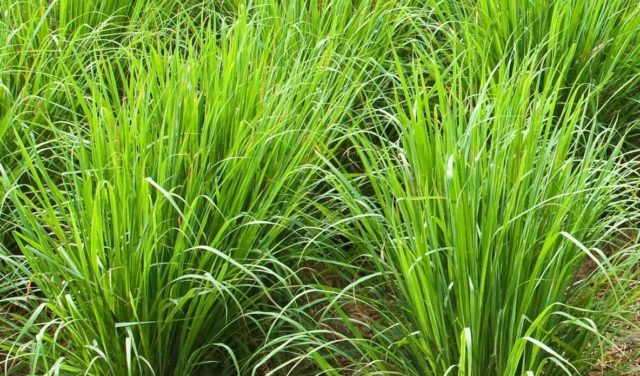
Lemongrass is a biennial herb with tough stems and sharp, long leaves. Very similar in appearance to leeks.
It grows mainly in tropical regions. It is very popular in Thailand, because it is there that the famous Tom Yam soup is prepared from this herb. Lemongrass has a characteristic citrus aroma, spicy, slightly pungent, so the plant is added as a seasoning to some seafood, poultry and meat dishes. It is also called lemongrass, lemongrass, citronella, and cymbopogon.
The chemical composition of the plant is unique. It includes a number of components, each of which affects the human body in a special way:
- vitamin B3 or niacin - participates in metabolic processes, especially useful for the skin;
- B2 or riboflavin - has an antibacterial effect, synthesizes hemoglobin, belongs to water-soluble vitamins;
- vitamin C - An antioxidant that protects against toxins and premature aging;
- vitamin A - has a beneficial effect on the organs of vision, skin, nails and hair, increases the level of immunity;
- phytosterols - an irreplaceable component of the cell membrane, which has anti-inflammatory, antibacterial and antifungal effects.
Also, the plant contains some macro and microelements: zinc, potassium, magnesium, silicon, chromium, sodium, phosphorus. These substances are essential for the proper functioning of organs and tissues.
Lemongrass benefits
The list of useful properties of the plant is quite wide. This is due to the rich chemical composition of the plant. Lemongrass has a healing effect in the following diseases:
- various types of disorders of the gastrointestinal tract;
- infectious and viral diseases;
- metabolic disorders in the body;
- depressive syndromes;
- disorders of the nervous system;
- skin pathologies;
- cardiovascular disorders;
- diseases of the upper respiratory tract;
- diabetes;
- tumor diseases;
- herpes virus;
- muscle and joint pain.
The beneficial properties of lemongrass tea are known - it is brewed at elevated temperatures, colds and viral diseases, and nervous excitability.
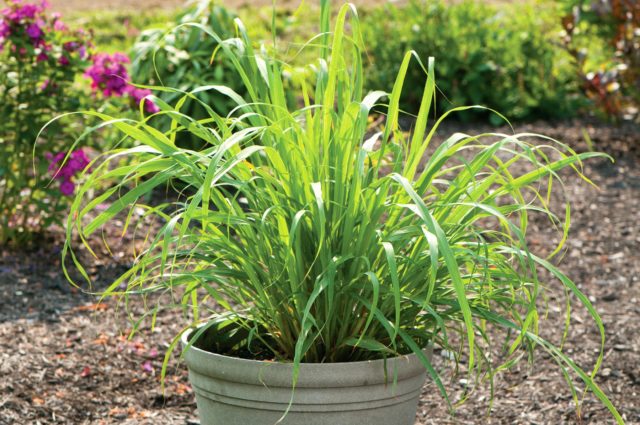
Lemongrass harm
Uncontrolled use of the plant can lead to undesirable health effects.Some substances that make up the culture can cause hypertension, increased anxiety, a drop in blood sugar levels, and allergic reactions. The essential oils of the plant dry out the skin and negatively affect the vocal cords. Therefore, like any other traditional medicine, lemongrass should be examined for contraindications before use.
Contraindications to lemongrass
The plant, despite its many useful properties, has a number of serious contraindications. These include:
- children under 10 years old;
- individual intolerance to some components that make up the culture;
- frequent allergic reactions of the body;
- some stomach diseases;
- increased nervous sensitivity;
- period of pregnancy;
- tendency to high blood pressure and bleeding;
- glaucoma and cataracts;
- epileptic seizures;
- diabetes.
Care should be taken to use cosmetics with lemongrass in the composition. Before use, you should undergo a skin tolerance test.
Quite unpleasant symptoms can also be observed with an overdose of plant products. It has been noticed that uncontrolled use can cause excessive drowsiness, increased appetite, weakness and dizziness, a slight dry mouth.
Lemongrass herb application
Due to a number of beneficial properties and rich chemical composition, lemon grass has found application in many areas:
- ethnoscience;
- cosmetology;
- aromatherapy;
- making perfumery;
- cooking.
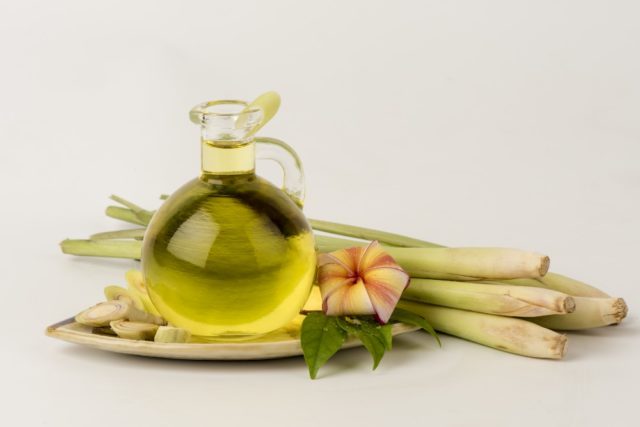
Many people use fragrant grass to repel annoying insects.
The use of lemongrass in traditional medicine
Herbalists and traditional healers use fresh stems of the plant and dried parts of the herb as a medicine. First of all, lemongrass helps with the following pathologies:
- headaches, dizziness;
- joint and muscle pain with bruises, sprains, lumbago, rheumatism, gout;
- some heart diseases, vascular pathologies;
- dysbiosis of the stomach and intestines;
- infectious diseases and viruses, such as herpes;
- respiratory diseases;
- fever;
- inflammatory processes in the genitourinary sphere;
- nervous disorders;
- skin diseases.
The most popular recipes using lemongrass are tea or infusion. Sometimes other plants are added to the grass: ginger, mint, lemon balm, chamomile, green tea. A spoonful of natural honey will enhance the beneficial properties of a lemon grass drink.
Cooking applications
Lemongrass dishes are often used in Asian cuisine. The herb is added to seasonings and spices for the preparation of first courses and meat dishes. The plant is often used to prepare desserts. In this case, you can add both fresh herbs and dried raw materials. Typically, the bottom of the lemongrass is used and the long leaves are cut off.
In some dishes, add whole stems, in others finely chopped. They are very tough in structure, so they are sometimes ground or ground in another way. The main task of the chef is to reveal the aroma of this greenery. Therefore, even before adding the whole stem, it should be tapped with a wooden mortar. At the end of the cooking process, the spice should be removed from the dish.
Dry lemongrass is used to make spices or seasonings. For marinades, sauces and drinks, lemongrass is first ground into a paste and added to the main course at the end of cooking.
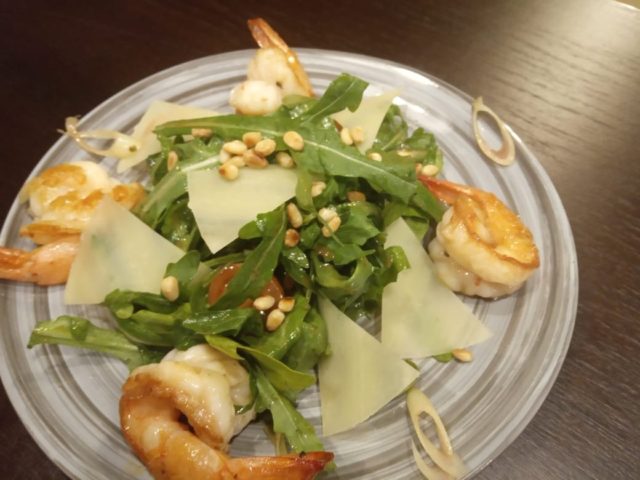
Most often, the plant is added in the preparation of fish dishes, some other seafood, meat, poultry, soups and stews.
The use of lemongrass in cosmetology
The beneficial properties of lemon grass in cosmetology have long been known. It is used for some problems with the skin of the face and body:
- heals wounds, small cuts;
- helps to get rid of fungus and excessive sweating of the feet;
- effective for skin rashes.
Lemon grass is more suitable for oily, normal to combination skin. Many women add a drop of the plant's essential oil to their face cream. Gradually, the skin becomes tighter, the pores become narrower, the oily sheen disappears, and the complexion evens out. Some women prefer to add oil to their tonic. The solution has a positive effect on skin tone, tone, helps smooth wrinkles and lighten pigmented heels on the skin of the face, back and hands.
Lemongrass essential oil is considered a proven anti-cellulite remedy because it tones and nourishes the skin. The agent is added in a small amount to a regular massage cream and a lymphatic drainage procedure is performed. A mixture of several oils can be made to be more effective. Linseed, sesame and olive oils work well with lemon grass oil.
Lemongrass when breastfeeding
While breastfeeding, a lemon grass drink significantly enhances lactation. There are several ways to prepare it. One large spoonful of a dry plant is needed for a glass of boiling water. It should be brewed for no more than 5-7 minutes. Then strain the infusion and drink like tea. You can add honey or sugar to it. A drink with the addition of green tea will also be useful.
For preparation, you need to take a teaspoon of green tea and the same amount of dried lemongrass. Boil the mixture with boiling water (0.5 l) and wait about 10-15 minutes. After that, you can use the infusion, but not more than 2 cups a day.
However, one must remember about contraindications, possible intolerance, allergic reactions from the weakened maternal body. The best solution would be to consult a specialist before using tea with the addition of lemongrass from Thailand, despite all its beneficial properties.
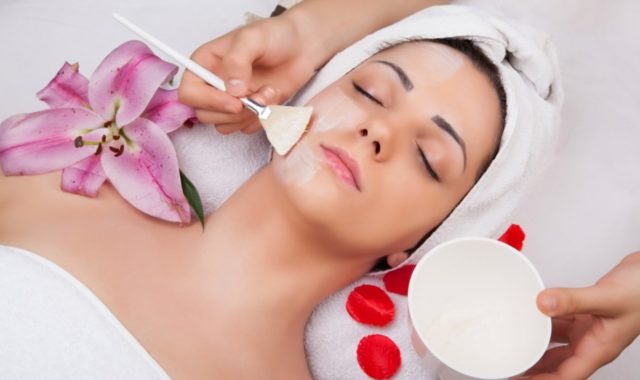
As a rule, in large supermarkets and shops, lemongrass is grown without the use of harmful fertilizers.
Conclusion
The beneficial properties and contraindications to lemongrass have long been established by phytotherapists, so you should not neglect them. In many ways, the plant is useful, does not belong to toxic species, but it has a number of limitations. The main ones are pregnancy, childhood and frequent allergic reactions. In order for the use of the plant to bring only benefits, you should carefully read the contraindications.

